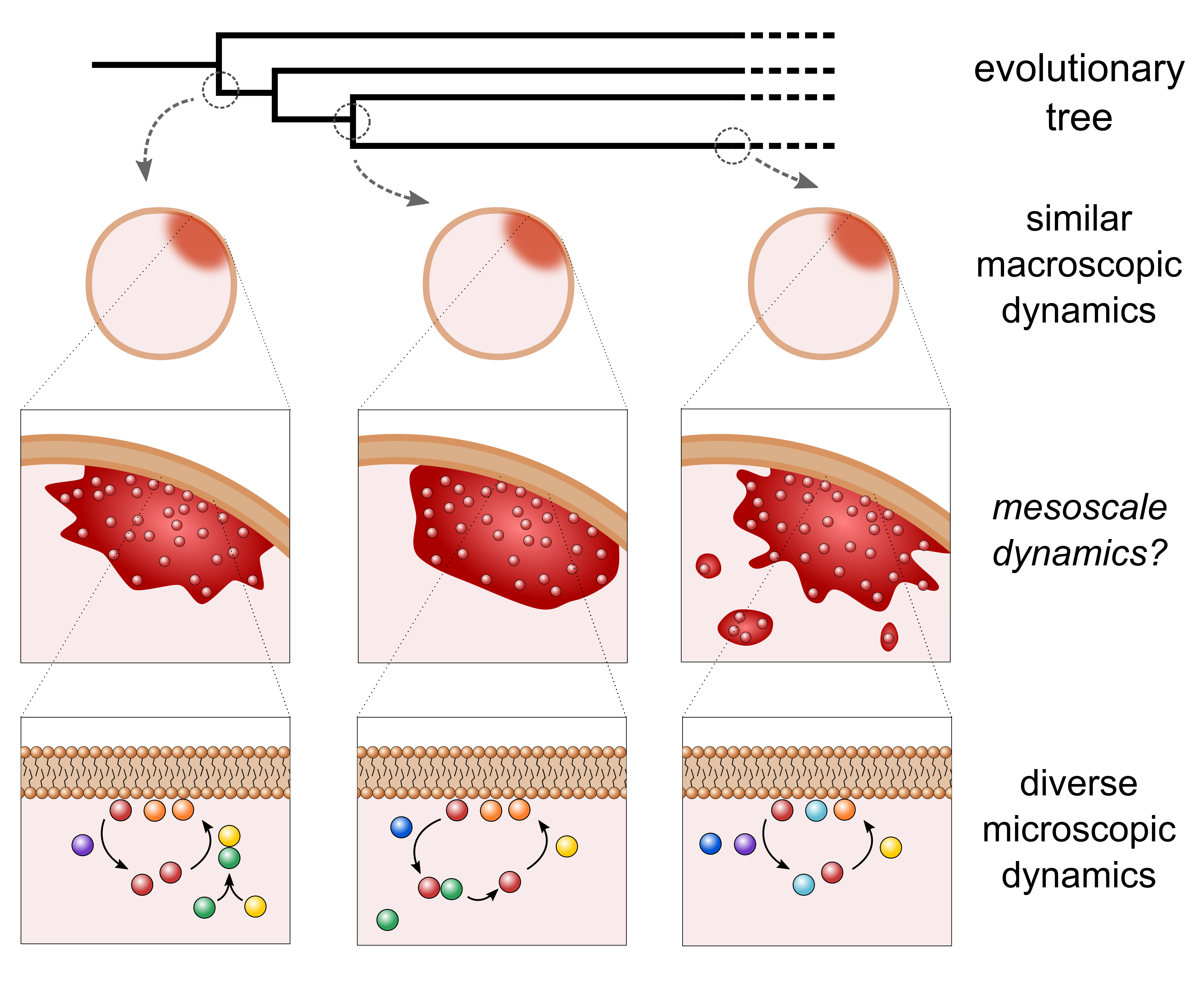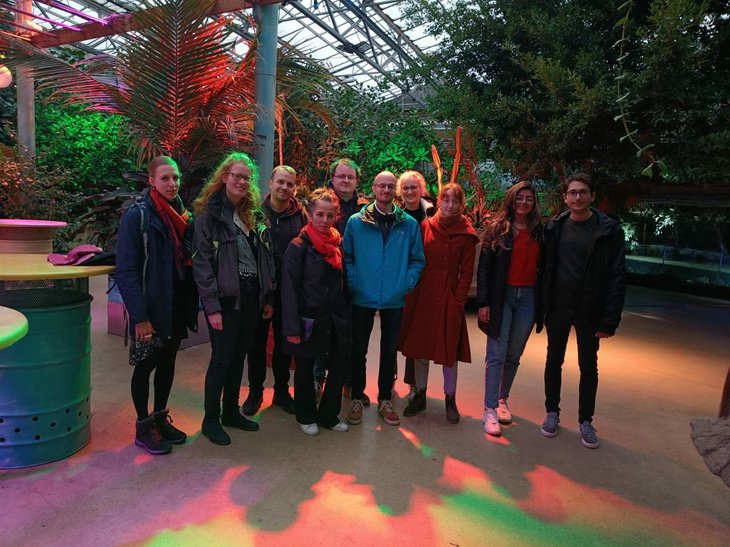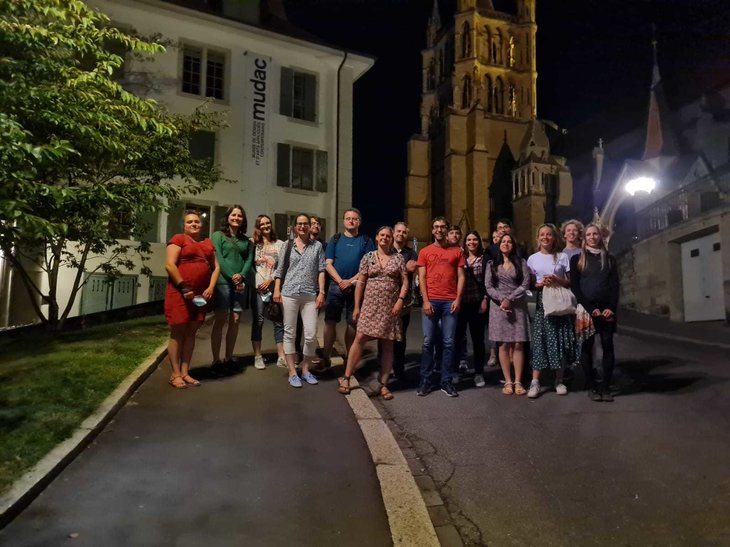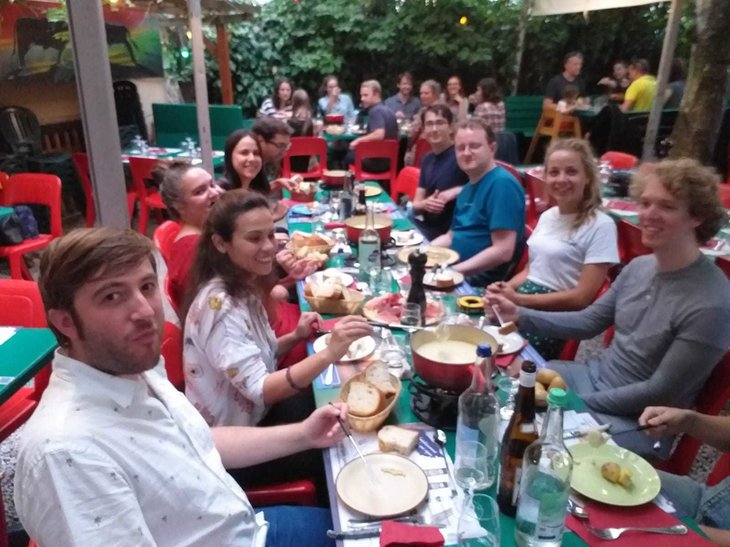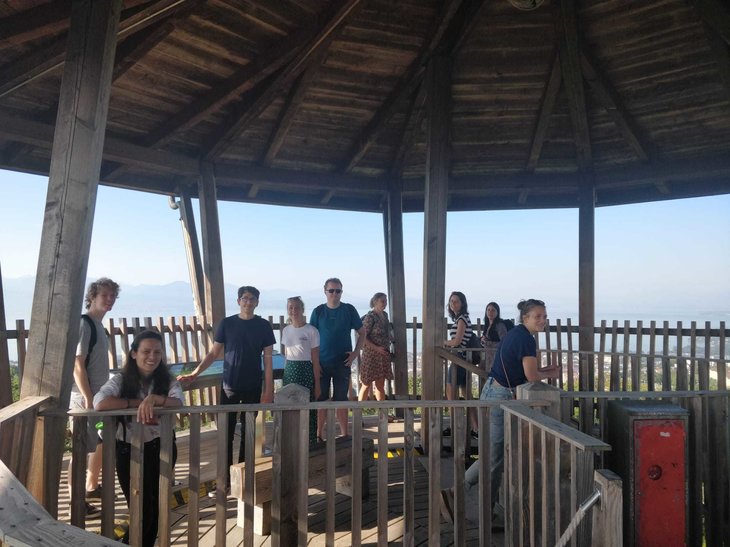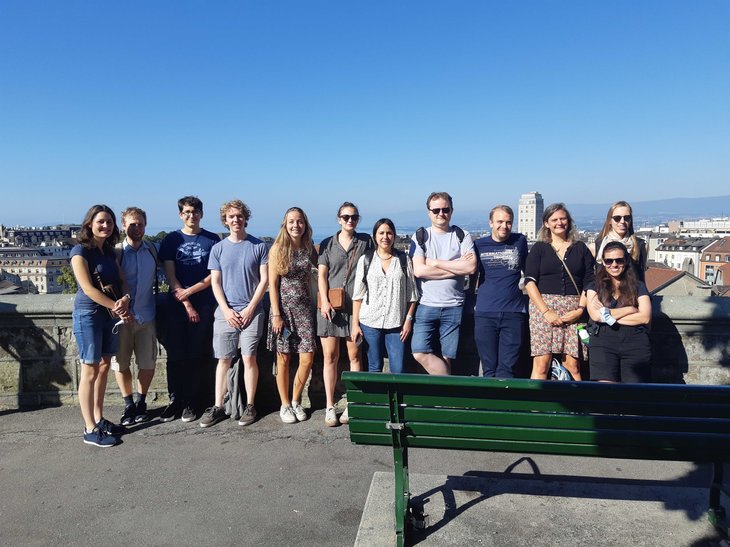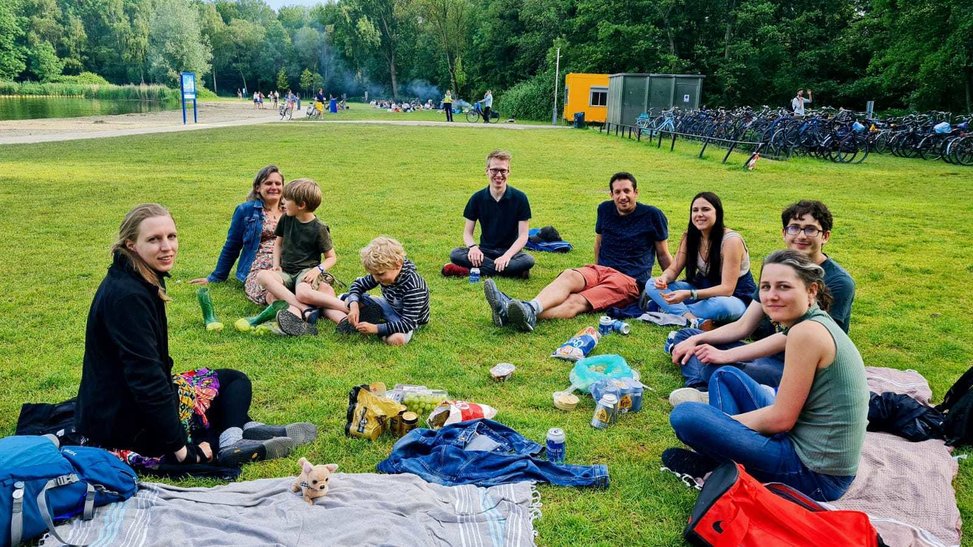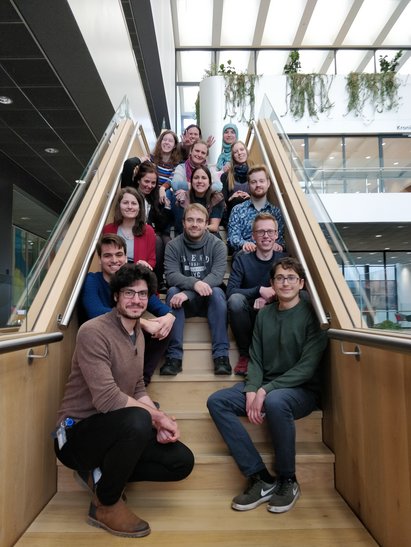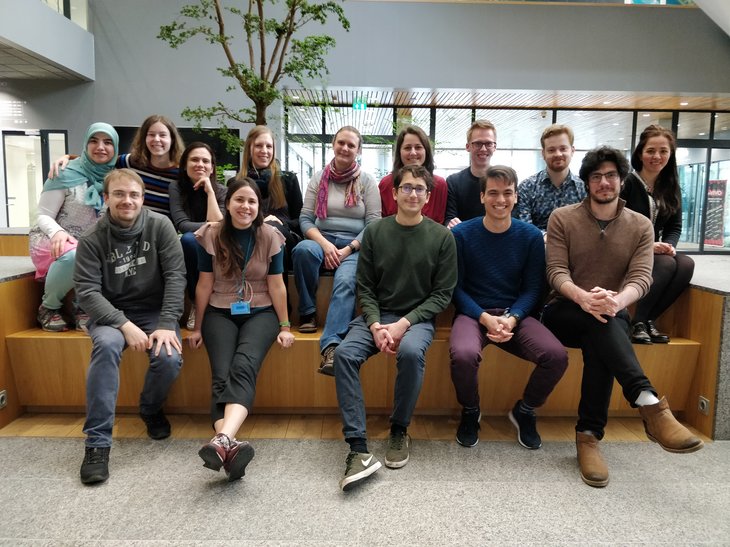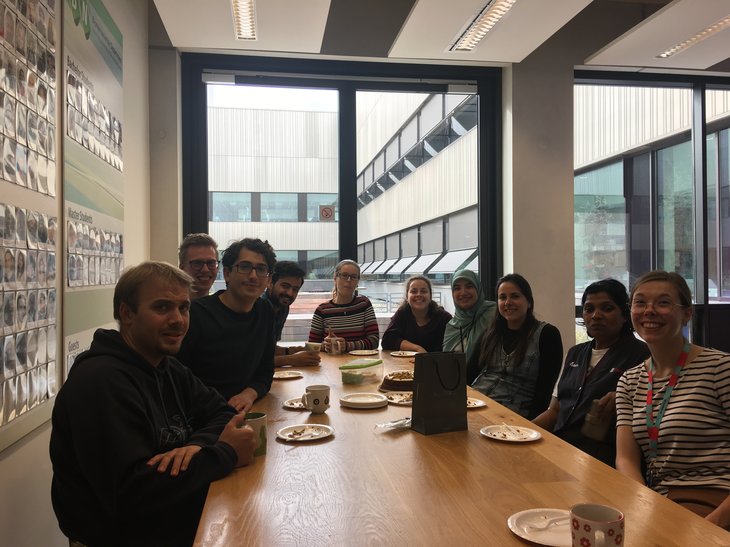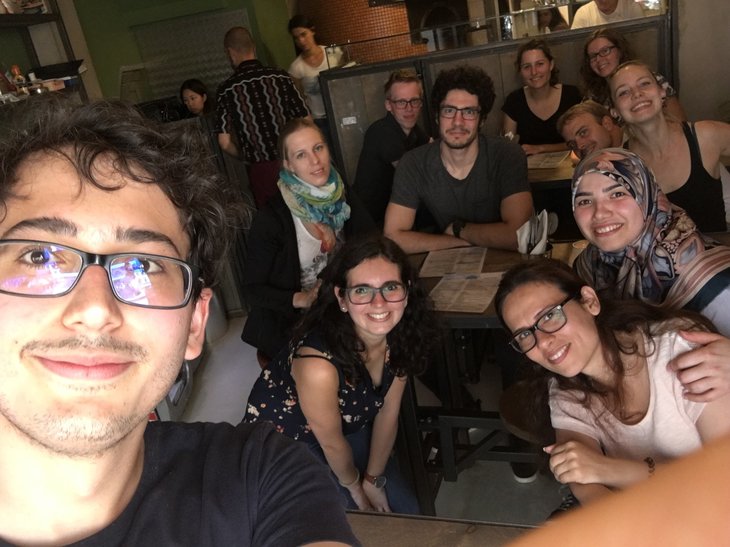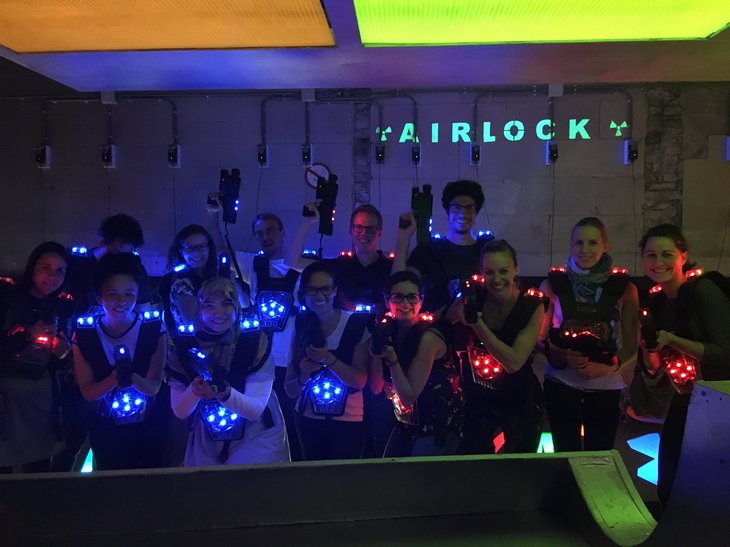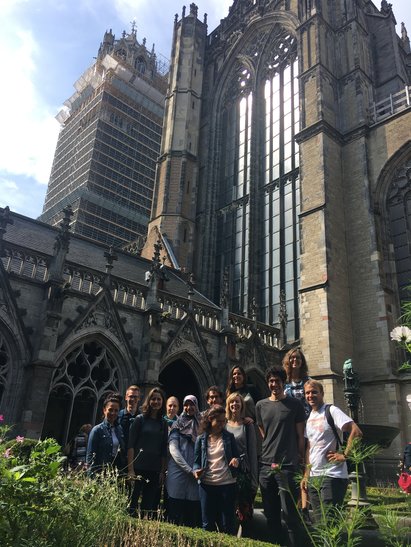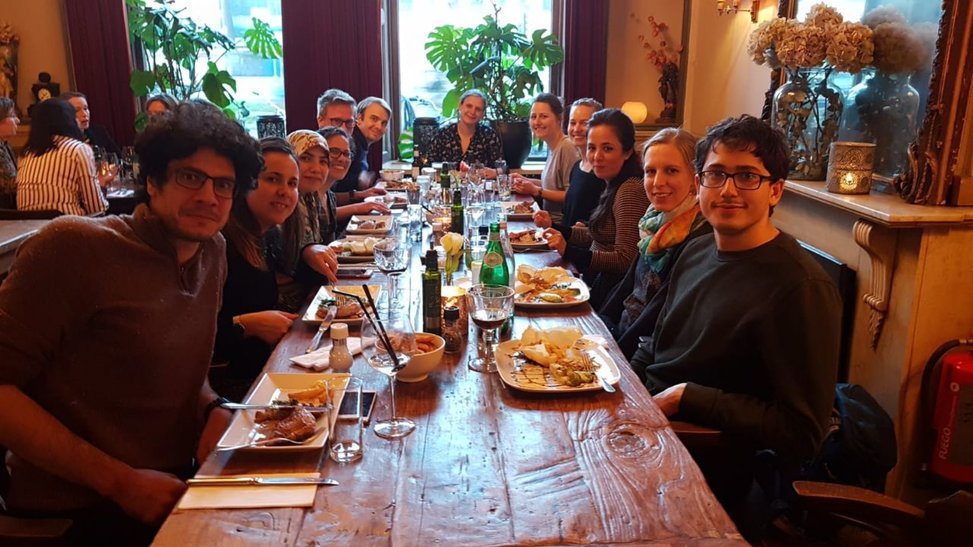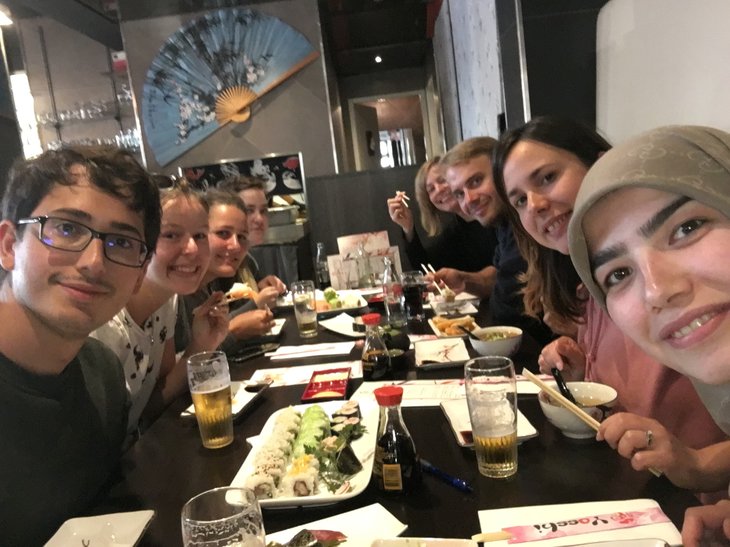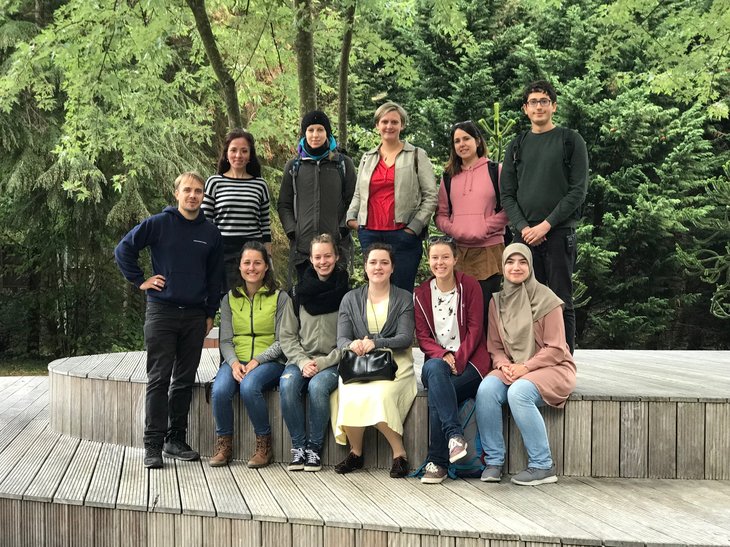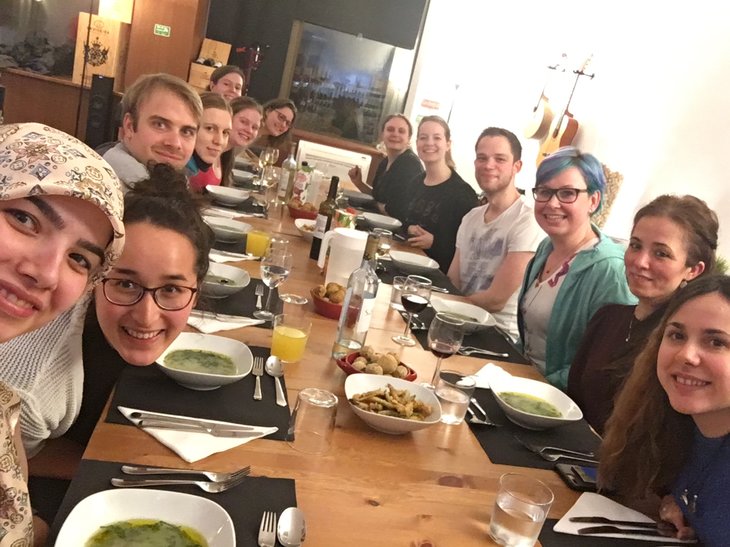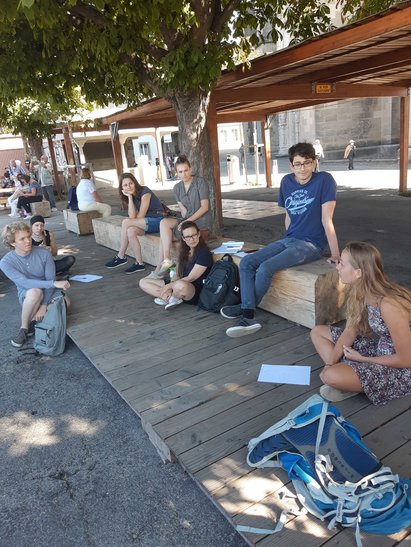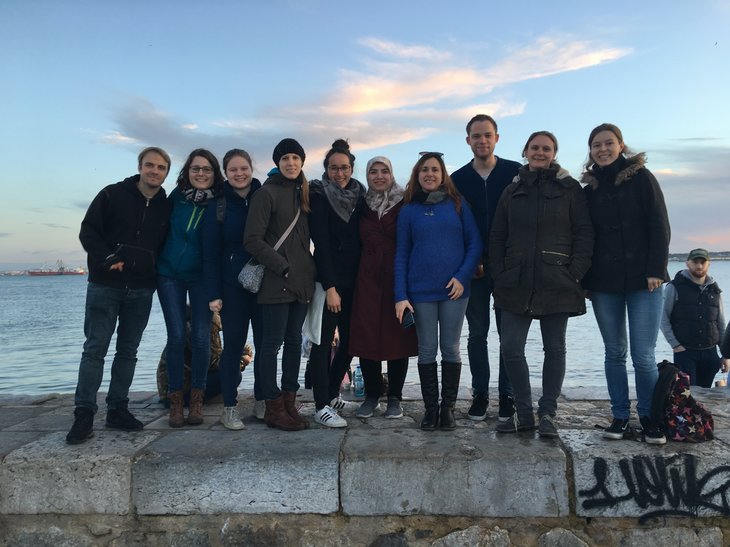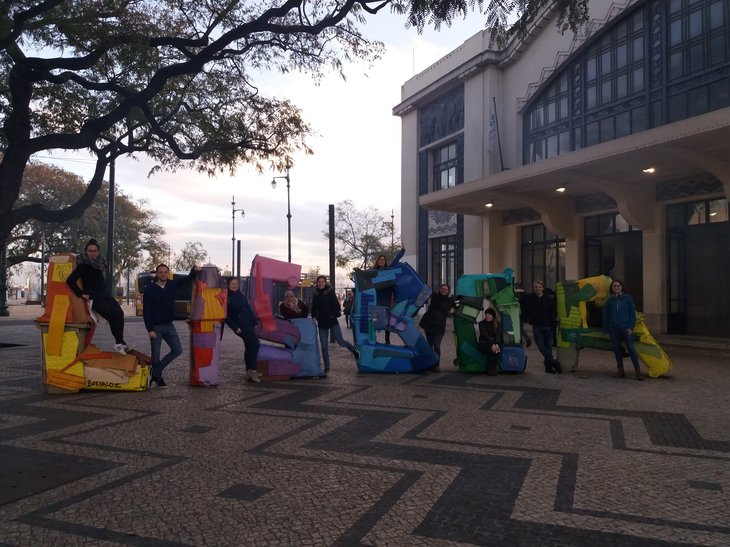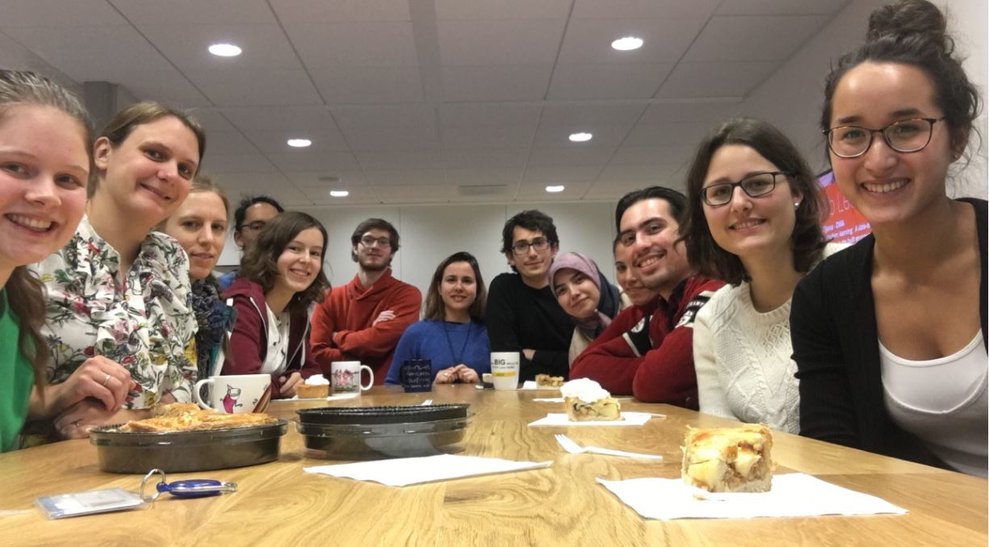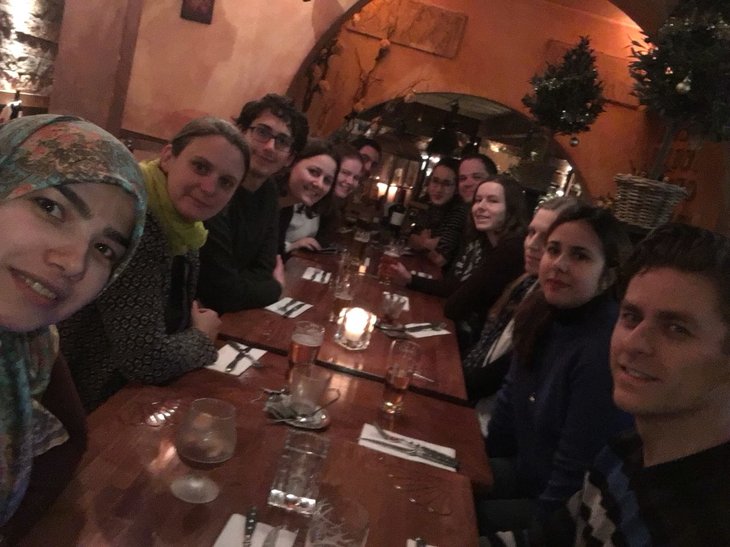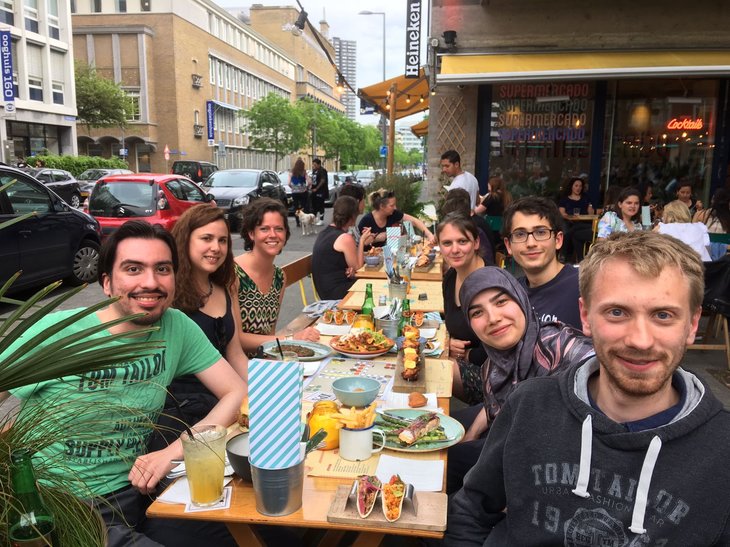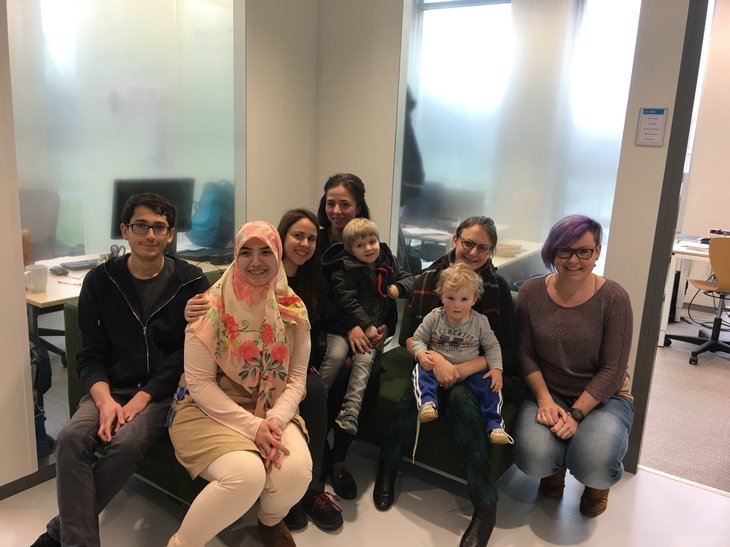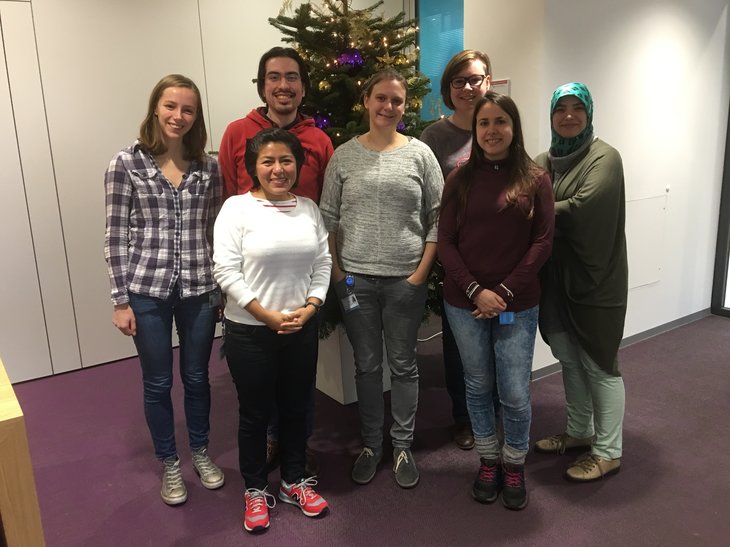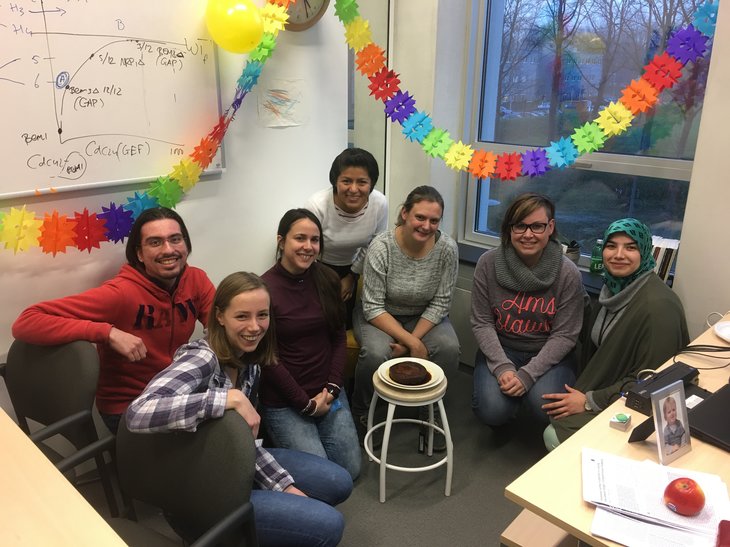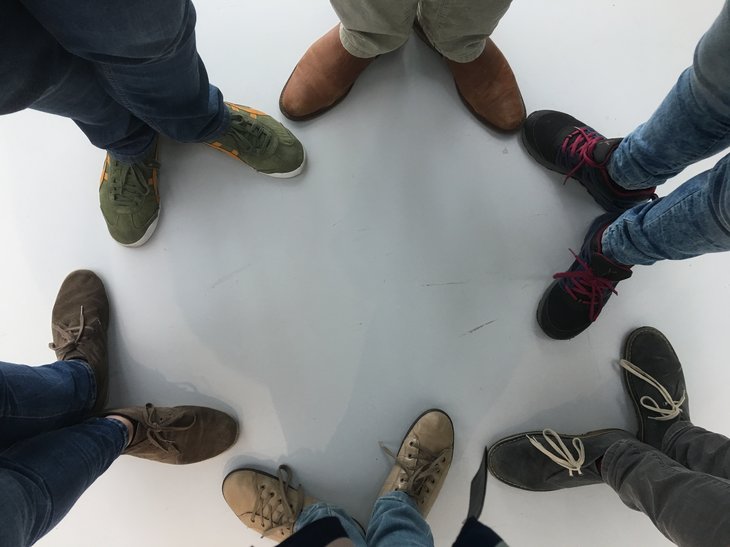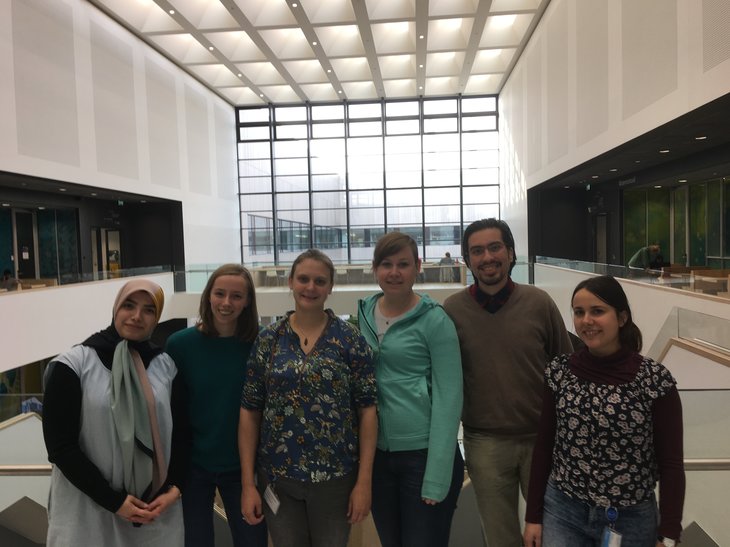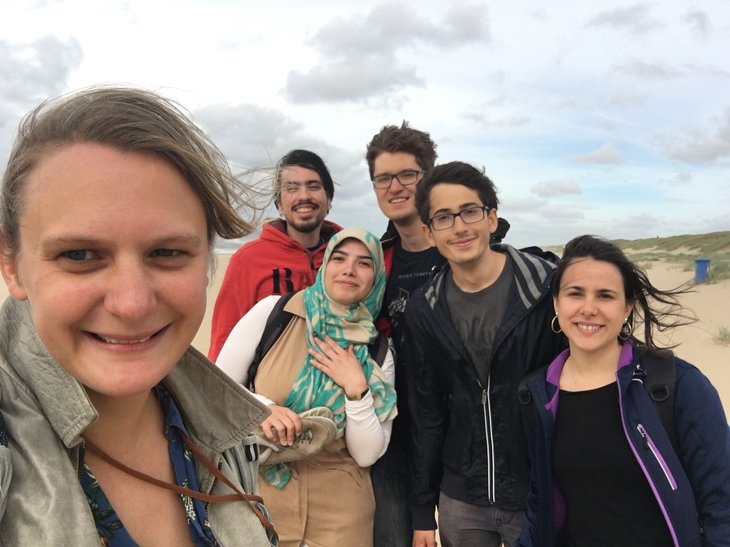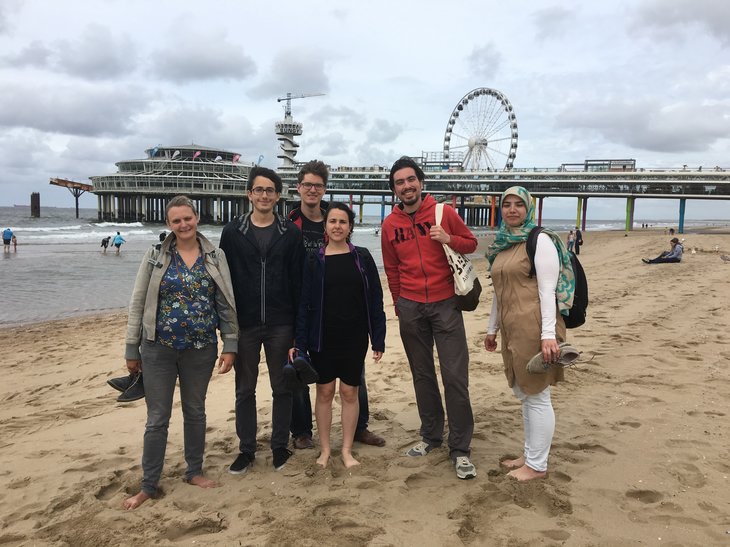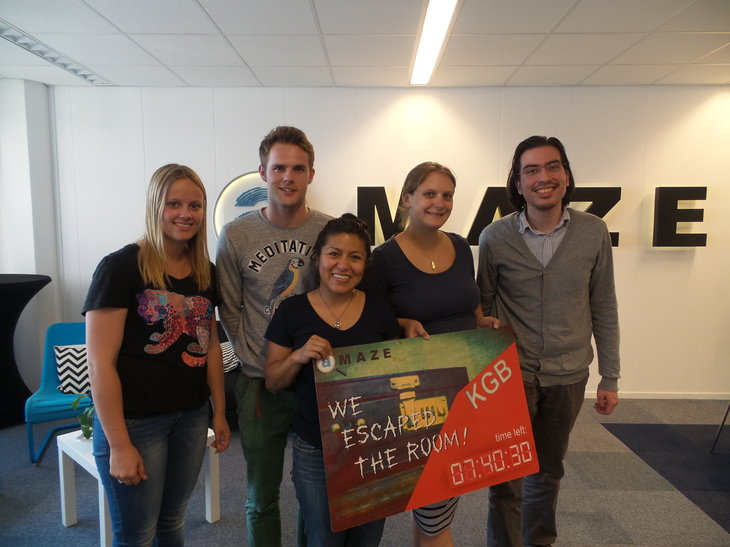Liedewij Laan Lab
Welcome!
The Laan lab is located in the Department of Bionanoscience, part of the Kavli Institute of Nanoscience at the Delft University of Technology. We are pioneering the emerging field of evolutionary cell biophysics.

Evolutionary Cell Biophysics
How is it possible that life is simultaneously highly robust on cell cycle timescales, yet also adaptable on evolutionary timescales? How do these properties emerge from the molecular building blocks of life? As pioneers of the emerging field of evolutionary cell biophysics, we are fascinated by how the physical and chemical properties of the building blocks, or components, of a cell (such as proteins, DNA, lipids etc. that need to obey physical and chemical laws) constrain and facilitate evolution of cellular functions. In this case a cellular function is the result of a complex, highly spatially and temporally regulated network, consisting of many different interacting components, “a biomolecular network”. The biomolecular network we focus on is symmetry breaking in budding yeast, which is the first step in polarity establishment and essential for proliferation. In budding yeast symmetry breaking is achieved by a biomolecular network of ~30 components which, through several regulatory feedback loops, form a localized protein pattern on the cell membrane. As a community we are starting to obtain a molecular understanding of how a living cell is organised by biomolecular networks on cell cycle timescales, however, how these networks reorganize over evolutionary timescales is still a major open question.
Why are these hard questions?
How biomolecular networks evolve is a complex problem for at least two reasons. First it is hard to know if a mutation in the network increases fitness and thus is adaptive, because this depends on the specific environment present when the mutation arose and we typically do not know the relevant environment for the evolutionary trajectory of existing species. Second, even if we know that a mutation is adaptive, it is hard to find out how adaptive mutations improve fitness, or even simply which biomolecular networks are affected for fitness increase, because in a living cell all biomolecular networks are connected.
Why do we care?
Foremost because these questions fascinate us. However we also hope that our fundamental findings help to (on the long run) better predict and control evolutionary processes, that have societal relevance, such as cancer progression or antibiotic resistance emergence, or the engineering of genetically stable drought resistant crobs.
Our approach
We take a multidisciplinary approach. First we combine experimental evolution, quantitative cell biology and modelling in live cells to study how adaptive mutations increase the fitness of a biomolecular network. The strength of this approach is that we can directly test whether a mutation is adaptive. Nevertheless, in this system, it is still challenging to find out how adaptive mutations increase fitness at the molecular level due to the overwhelming complexity of a living cell. Therefore, we are also setting-up minimal in vitro systems. In these systems we know the complete network, so we can manipulate and control every component to determine its function for the network’s fitness and evolvability. Last but not least, we perform experimental evolution studies to test whether we how well we predict and steer evolution based on our acquired knowledge.
Group photos
Research Funding
The Laan lab gratefully acknowledges funding from:
- Consolidator Grant from the European Research Council
- Evolf, evolving life from non-life, from NWO
- Starting Grant from the European Research Council (ERC)
- VIDI personal grant from NWO-ALW
- the Delft Technology Fellowship
- the Nanofront program of NWO
News
December 3rd
Hurray, we got an ERC-CoG grant to study the robustness of cell polarity in yeast!!!!!
October
Weilun joins the lab as a Nanobiology master students working on simulating yeast polarity, welcome!
October
Ramon leaves the lab to become a project leader at BN, we will miss him (a lot) and also wish him lots of fun and success in his new role.
October
Enzo and Leila’s paper about the quantification of Satay data is now accepted in Plos One, good work!!
October
Christine’s work in collaboration with the Kraft and Zwanikken lab on superselectivity by multivalent nanostars is published in Soft Matter!!
October
Marieke (talk) and Nynke (poster) present their work at Dutch Biophysics, check it out.
Summer
Valentina, Esther, Zhiheng, Ada and Thomas successfully defended their MEP and BEP thesis, congrats!
May
The large consortium EVOLF (evolving life from nonlife), where Liedewij is part of, got funded! PhD and Post-doc positions will open up in the fall.
April 17th
Marieke wins the poster prize at the Netherlands Complex Systems Annual Conference, congrats!!
Feb 16th
Enzo’s paper about genome wide adaptation during compensatory evolution is on the bioRxiv now!
Feb 11th
Welcome to bachelor student Ada, who will do a shared project co-supervised by Nikolina Šoštarić.
Feb 8th:
Nynke worked with Marco Locarno and Daan Brinks on enhancing voltage indicators with plasmonic enhancement, which you can read about in their recent preprint.
Feb 6th
Sophie’s and Werner’s protocol paper got accepted in Current Protocols, congrats!
Feb 5th
Thomas Ederveen joins our lab for his Nanobiology BEP project, welcome!
Feb 1st
Nynke becomes the first BN – “van Rijn junior lecturer”, well done and good luck!
2024
December 5th
Secret Santa “Sinterklaas” afternoon with the lab!
November 24th
Sophie and Werner’s protocol for the quantification of Cdc42 GTPase cycling is on the biorxiv now
November 8th
Enzo defended his PhD thesis very well and is a doctor now, we are very proud!
September 8th
Enzo’s paper about quantifying fitness effects using SATAY is on the BioRxiv now.
September 4th
Zhiheng and Esther join the lab for their Master End Project, welcome!
September 2023
Nina and Ingmar successfully defended their BEP and MEP! Congrats and thanks for the great work you did!
July 4th
Liedewij is invited to speak at the retreat from the QBM graduate school (Quantitative Biosciences Munich) close to Munich.
June 30th
We were awarded a BEI Msc project with Johan Dubbeldam from EEMCS to use network theory to predict how mutations change an empirically determined fitness landscape.
June 29th
Our collaborative paper with the groups of Jos Zwanikken and Daniela Kraft about how the valency and binding strength of a protein affects its selectivity of binding to a surface is now on the arxiv, see under publications.
June 25th
Sophie's and Werner's paper about the regulation of Cdc42 is now on the bioriv, see under publications.
June 25th
Our paper with the group of Erwin Frey about redundancy and evolution in the polarity network is accepted in Nature Communications, jippie!
June 23rd
Sophie is awarded an independent post-doctoral fellowship from the Kavli Institute for Nanoscience Delft to continue her PhD work for another year in our lab in collaboration with Martin Depken, well-deserved!
June 19th
Enzo's and Leila's paper about evolutionary repair is accepted in Frontiers in Microbiology, congrats!
June 10th
Liedewij participates in a pod-cast series from the origins-center about evolution of life on other planets (in Dutch), check it on https://www.originscenter.nl/podcast/aflevering-5-vertellen-universele-evolutiewetten-hoe-buitenaards-leven-er-uit-zal-zien/
22nd of May
Liedewij, Marieke and Nynke attend the EMBO polarity workshop in Spain, Liedewij gives a talk and Marieke en Nynke present a poster.
April 12th
Liedewij gives a talk at the 2023 Origins center meeting in Groningen
March
Werner’s and Els’ paper about reconstructing the genotype-phenotype map bottom-up is now published in Philosophical Transactions of the Royal Society B!
March
The Laan lab attend the APS march meeting in Las Vegas!
2023

